In May 2022, the Charles Darwin Foundation (CDF) published the case study: "The story of 'Pescado Azul' in Isabela: a case to transmit, remember and learn". The Pescado Azul Women's Association, created in 2001, consisted of a group of women dedicated to the production and marketing of fishery products derived from artisanal fishing. Despite obtaining important achievements, marking a milestone in the development of gender-focused initiatives and being recognized as an emblematic initiative on ´development´ in Galapagos, the Association vanished at the end of the decade without leaving much of a trace. For this reason, as part of the work carried out on the “gender in fishing” topic, the CDF initiated this study which describes this initiative, explores the reasons for its discontinuity and illustrates the lessons learned from this experience. The results contribute to a better understanding of the benefits and challenges of development projects. This knowledge contributes to the adequate design and implementation of future initiatives that include a gender and sustainability perspective in the Galapagos context.
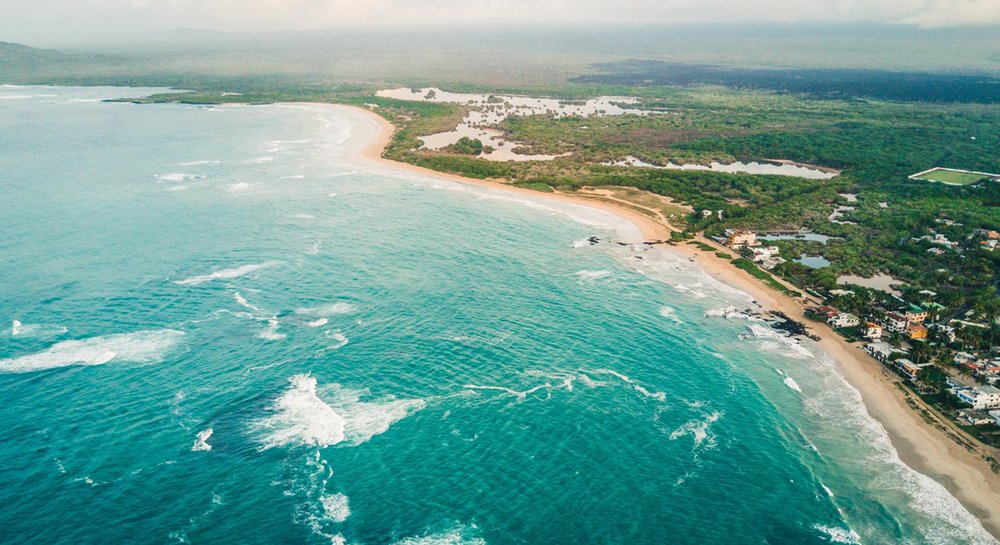
As part of the study 21 interviews were conducted. Thirteen of these were institutional actors that were related to the initiative, such as The Spanish Agency for International Development Cooperation (AECID), The United States Agency for International Development (USAID), the Charles Darwin Foundation, Wild Aid, the World Wildlife Fund (WWF), the Directorate of the Galapagos National Park (DPNG) and the Isabela Artisanal Fishing Production Cooperative (COPAHISA). The remaining eight interviews were conducted with members of Pescado Azul, who participated as reviewers and editors in this publication.
“Very, very, very wonderful and unforgettable experience because it started from nothing; that is, out of nowhere with women who were really committed... The goal was to form an organization, to work, to have an income” (Member, 01/25/2021).
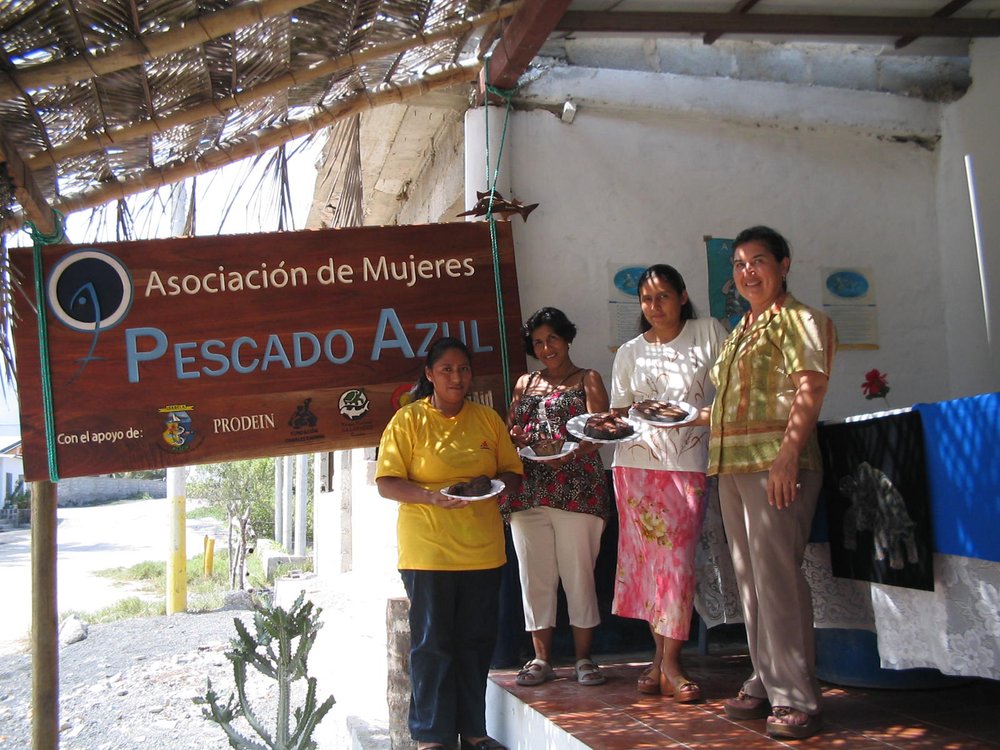
Context y origin
According to the interviewers, Isabela, at the beginning of 2000, presented a socio-economic structure based on fishing. This was a time of conflict between fishermen and the GNPD due to the illegal fishing of sharks and sea cucumbers, which led to the support of various initiatives to create economic alternatives. On the other hand, Isabela suffered from a 'double isolation' from the mainland and the other islands due to scarce transportation. In addition, the men, mostly fishermen, were the ones who generated the family income and the women were relegated to the home duties without much access to education or employment.
In this context of support for economic alternatives, the Women's Association 'Pescado Azul' was created, whose purpose was to produce and market smoked fish, croquettes and pâté. The raw material came from artisanal fishing, mostly albacore (Thunnus alalunga) and they used guava wood (Psidium guajava), an invasive species in Galapagos, to smoke the fish. This group received considerable support from various institutions such as AECID, USAID, CDF, WWF, Wild Aid, GNPD through its Isabela Technical Office, among others.
“Pescado Azul wanted to join forces by giving added value to the raw material of the artisanal fisherman. Also, smoking the fish with the guava tree (helped) to the conservation (of Galapagos)…” (Member, 04/04/2022).
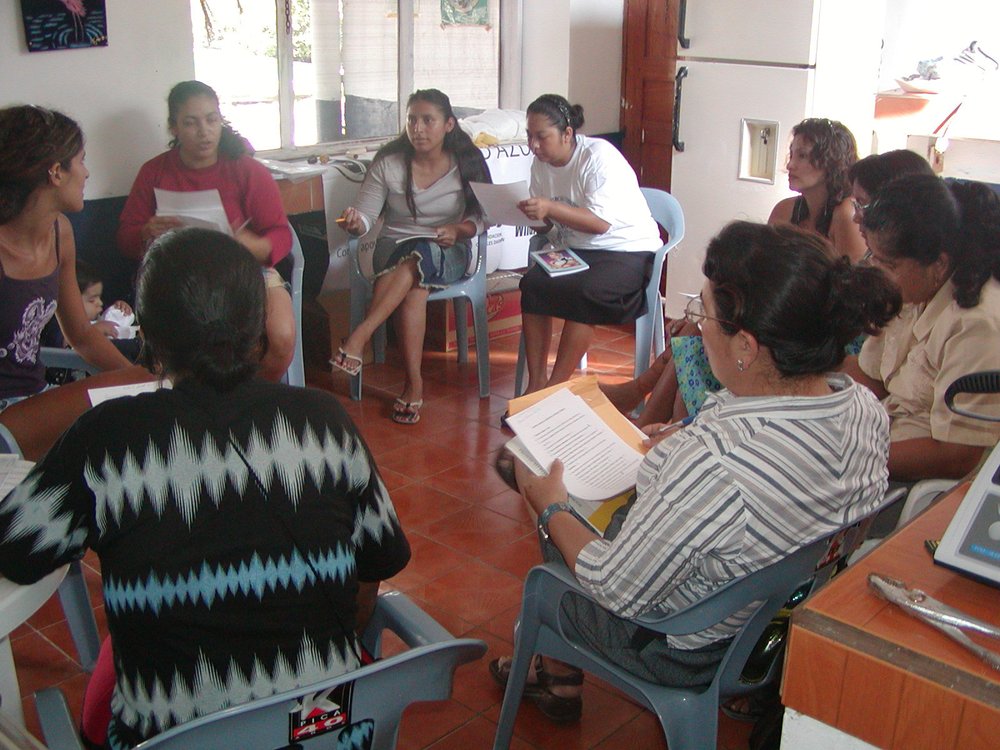
Difficulties and achievements
Pescado Azul faced several internal and external challenges that influenced its operation. The internal difficulties include the conflicts between the members due to the absence of adequate accounting, the great effort required to keep up with the initiative, and the low income generated. In the external ones, the limited market, the irregular supply of raw material and the absence of continuous and long-term support are identified. In addition, there were challenges related to gender roles and the sexual division of labor. For example, the conflicts that some of the members had with their partners due to the time they spent away from home, the low income obtained, the resistance to they to generate their own income and the double workload between Pescado Azul and their homes.
Despite these difficulties, important achievements were obtained, such as adding value to a fishery product from an artisanal fishery dedicated only to primary production. Others were the formalization of the organization and transcending borders, by selling products outside Galapagos; as well as by allowing the members to go out of the island to receive training, participate in fairs and even travel to Germany to receive the Equator Prize in 2006. Finally, a process of empowerment of the members took place thanks to the opportunity to obtain new knowledge, strengthen their decision-making and leadership; and generate their own income.
"I think that Pescado Azul opened a different panorama for many of these women and this was reflected in the dynamics of their families and in general of the island " (Institutional actor, 02/13/2021).
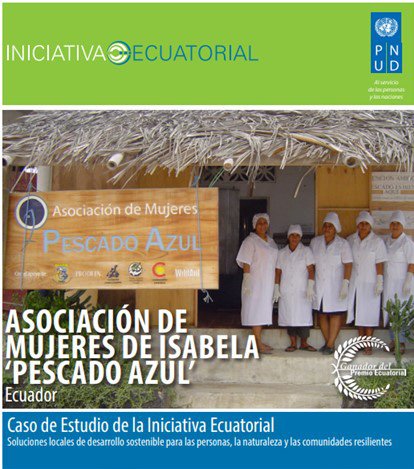
Lessons Learned, Analysis and Closure
The institutional actors indicated that there was no adequate understanding of the social problem because the support for this initiative was given mainly to find alternatives to illegal fishing. For this reason, technical-productive capacities were prioritized over human development capacities. On the other hand, the partners evidenced the need to generate trust and commitment; and to make greater efforts to open the market because their sales were variable and did not cover, on a regular basis, their operational expenses.
The analysis of the results of this report makes visible considerations for future similar initiatives such as the importance of understanding the needs of the target groups when conceiving and designing an intervention; as well as to avoid falling into welfare actions that generate dependency. It is also emphasized that the initiatives arise from a "bottom-up" approach and that their development must be participatory. Finally, the need to include a comprehensive gender approach as a central aspect of initiatives that promote gender equality and women empowerment.
Although Pescado Azul ended its production more than a decade ago, it is still present in the memory of the people of Isabela and Galapagos. This is due to the fact that paradigms were broken, by being pioneers in producing and selling processed fish products and by demonstrating the capacities of women to undertake initiatives when, at that time, they were only dedicated to their homes. This shows that committed groups can be catalyzed with the necessary support and achieve important results. For this reason, we hope that this report serves not only as a closure of the Pescado Azul initiative, but also to improve the design and execution of interventions in order to help them to generate the desired impacts and transcend over time.
“… we had put the children to sleep up there on the terrace next to us that were smoking (the fish). A colleague said that one day we will tell our children about all the efforts that we were doing… when they have grown up, we are all going to be businesswomen… we laughed about it while we saw all of them sleeping in line” (Member, 01/25/2021).
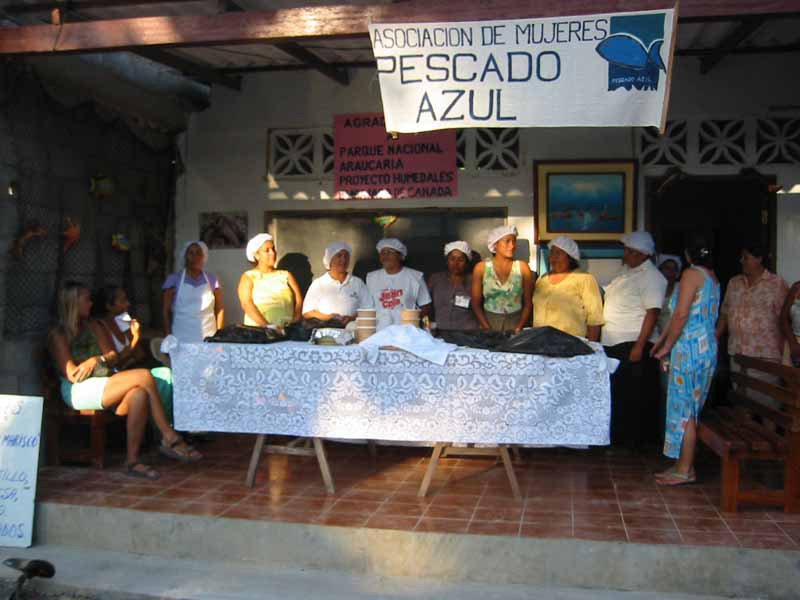
Learn more about the project “Socio-ecology, evaluation and management of fisheries: steps towards sustainability” and about the projects and activities carried out by the Liaison Office of the Charles Darwin Foundation in Isabela.
You can download the Report here.




